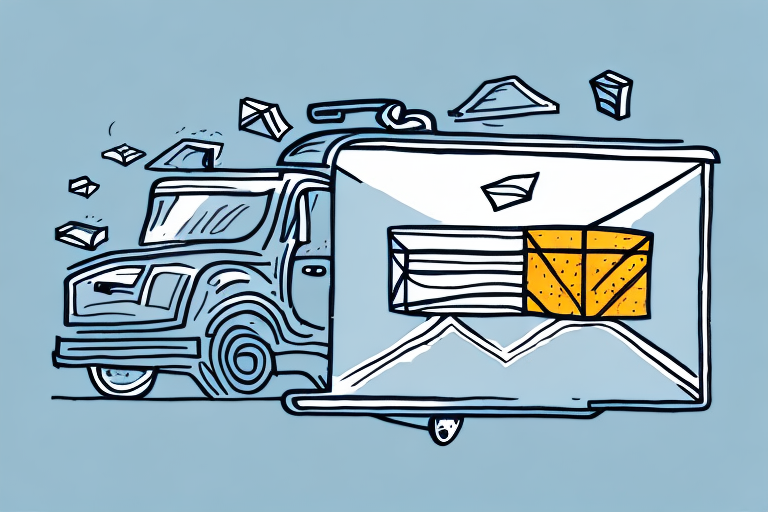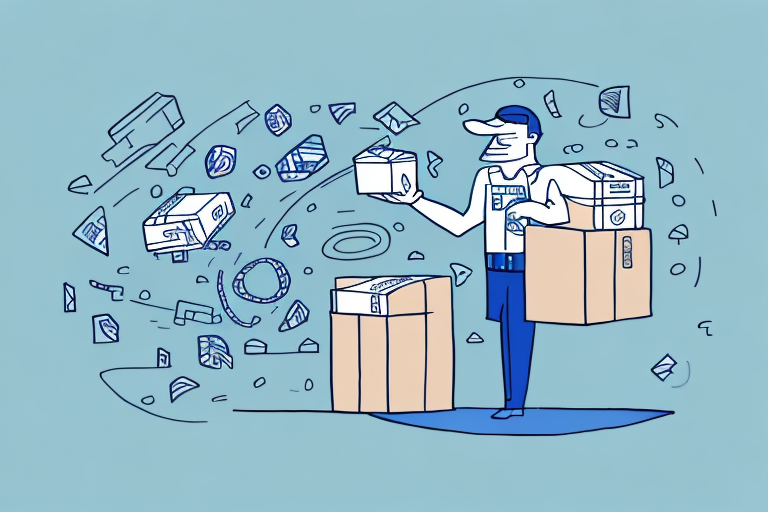Becoming a Driver Courier: What You Need to Know
If you are considering a career as a driver courier, you've come to the right place. This comprehensive guide covers everything you need to know about the driver courier industry. From the benefits and various types of driver couriers to legal requirements and regulations, we've got it all covered. Let's dive in!
The Benefits of Becoming a Driver Courier
One of the most significant advantages of becoming a driver courier is flexibility. As a driver courier, you have the freedom to choose your own schedule and work at your own pace, making it an ideal option for those seeking part-time or supplementary income.
Flexible Scheduling
You can select hours that fit your lifestyle, whether you prefer daytime deliveries or nighttime shifts. This flexibility allows you to balance work with other commitments, such as education or family responsibilities.
Potential for Extra Income
Driver couriers have the opportunity to earn additional income. Many work part-time or on weekends, supplementing their regular earnings. According to a 2023 Uber Press Release, the gig economy continues to grow, providing ample opportunities for drivers to increase their earnings.
Personal Fulfillment
Delivering packages and goods brings a sense of fulfillment and purpose. By ensuring timely deliveries, you contribute to the efficiency and convenience of businesses and customers alike.
Exploration and Networking
Working as a driver courier allows you to explore different neighborhoods and meet new people, expanding your personal and professional network.
Responsibilities and Types of Driver Couriers
A driver courier's primary responsibility is to pick up and deliver packages, documents, and other items to their respective destinations. The role can vary based on the type of courier service you choose to provide.
Types of Driver Couriers
- Food Courier: Delivers meals from restaurants to customers, often requiring timely and temperature-controlled deliveries.
- Medical Courier: Handles sensitive medical supplies and documents, necessitating reliability and adherence to strict protocols.
- Freight Courier: Transports larger shipments, which may involve handling heavy or bulky items.
- Personal Courier: Provides customized delivery services, such as running errands or delivering personal items.
Requirements and Steps to Becoming a Driver Courier
Becoming a driver courier involves several key steps and requirements to ensure you are prepared for the role.
Essential Requirements
- Valid Driver's License: A current and valid driver's license appropriate for the vehicle you will be using.
- Proof of Insurance: Adequate vehicle insurance coverage for commercial deliveries.
- Reliable Vehicle: A dependable car or van equipped with GPS navigation.
- Smartphone or GPS Device: Essential for navigation and communication with dispatchers or customers.
Steps to Get Started
- Research the Industry: Understand the different types of courier services and determine which aligns with your skills and interests.
- Obtain Necessary Documents: Ensure you have a valid driver's license, insurance, and any required permits or certifications.
- Choose Your Platform: Decide whether to work with third-party delivery companies or operate independently as a freelancer.
- Apply for Jobs: Submit applications to delivery companies or set up your own delivery business.
- Prepare Your Vehicle: Ensure your vehicle is in good condition and equipped with necessary tools for efficient deliveries.
Training and Certification for Driver Couriers
While becoming a driver courier doesn't always require formal education, certain certifications and training can enhance your credibility and efficiency.
Mandatory Certifications
- Medical Transport Certification: Required for delivering medical supplies and equipment, ensuring compliance with health regulations.
- Hazardous Materials Endorsement (HME): Necessary for transporting hazardous materials safely.
Additional Training
Participating in defensive driving courses can improve your driving skills and safety awareness. Some companies offer their own training programs to onboard new drivers effectively.
The Pros and Cons of Being a Driver Courier
Like any profession, being a driver courier has its advantages and challenges.
Pros
- Flexible Schedule: Ability to set your own working hours.
- Be Your Own Boss: Control over your workload and rates.
- Steady Income Potential: Opportunities to earn a reliable income, especially with full-time commitment.
- Community Engagement: Building relationships with local businesses and customers.
Cons
- Long Hours: Extended time on the road can be tiring.
- Vehicle Wear and Tear: Increased mileage may lead to higher maintenance costs.
- Safety Risks: Navigating unfamiliar or high-traffic areas can pose safety challenges.
- Unpredictable Income: Earnings can fluctuate based on demand and competition.
Finding Job Opportunities and Tips for Success
Securing job opportunities as a driver courier involves strategic planning and networking.
Where to Find Jobs
- Third-Party Delivery Companies: Platforms like ShipScience offer various delivery jobs that you can apply for.
- Local Businesses: Many local retailers and restaurants require delivery services. Reaching out directly can open up opportunities.
- Online Job Postings: Websites like Indeed, LinkedIn, and specialized courier job boards regularly list courier positions.
- Starting Your Own Business: Advertise your services on social media platforms and local community boards to attract clients independently.
Tips for Success
- Maintain Excellent Customer Service: Being polite, punctual, and reliable can lead to repeat business and positive reviews.
- Optimize Your Routes: Use GPS and route planning tools to make your deliveries more efficient, saving time and fuel.
- Stay Organized: Keep track of your deliveries, schedules, and expenses to manage your business effectively.
- Invest in a Reliable Vehicle: A well-maintained vehicle reduces the risk of breakdowns and ensures timely deliveries.
Legal Requirements and Overcoming Challenges
Adhering to legal requirements and addressing common challenges is crucial for a successful career as a driver courier.
Legal Requirements
- Traffic Laws: Follow all local and national traffic regulations to avoid fines and penalties.
- Licensing and Permits: Ensure you have the necessary licenses and permits for the type of deliveries you handle.
- Insurance: Maintain appropriate insurance coverage to protect yourself and your vehicle.
Common Challenges and Solutions
- Traffic Congestion: Plan your routes during off-peak hours and use traffic monitoring apps to navigate efficiently.
- Difficult Customers: Maintain professionalism and clear communication to resolve conflicts amicably.
- Vehicle Maintenance: Schedule regular maintenance to prevent unexpected breakdowns and ensure your vehicle is always roadworthy.
The Future of the Delivery Industry and Its Impact on Drivers
The delivery industry is poised for significant growth, driven by the rise of e-commerce and evolving consumer expectations.
Industry Growth
According to a report by Statista, global e-commerce sales are projected to reach $6.3 trillion by 2024, leading to increased demand for delivery services.
Technological Advancements
Advancements in technology, such as automated routing and autonomous delivery vehicles, are streamlining operations and potentially increasing efficiency for driver couriers.
Impact on Drivers
While technology can enhance productivity, it also introduces new challenges, such as the need for continuous learning and adaptation to new tools and systems.
Making the Most Out of Your Career as a Driver Courier
To thrive in the driver courier industry, focus on continuous improvement and strategic planning.
Stay Informed
Keep up-to-date with industry trends, regulations, and best practices by following reputable sources and participating in relevant training programs.
Maintain a Positive Attitude
A positive mindset helps in overcoming challenges and provides excellent customer service, which can lead to better job satisfaction and business growth.
Provide Exceptional Service
Going the extra mile in delivering packages on time and handling them with care can set you apart from competitors, leading to increased customer loyalty and referrals.
Build a Strong Reputation
Consistently reliable and professional behavior can help you build a strong reputation in the industry, attracting more clients and opportunities.
In conclusion, becoming a driver courier can be a rewarding and flexible career choice. By following the steps and tips outlined in this guide, you can set yourself up for success in this growing and dynamic industry. Good luck!








